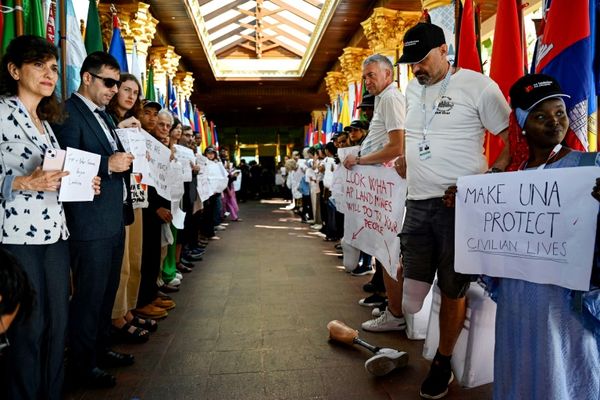
Dubai (AFP) - Deadly attacks by Yemeni rebels have struck the United Arab Emirates' image as an "oasis of security" and left it pondering a dangerous new phase in the conflict, analysts say.
The UAE had kept the seven-year war at arm's length, but Monday's drone and missile assault on key infrastructure laid bare the threat posed by the Iran-backed Huthi insurgents.
Three people were killed and six wounded as the Huthi attack set off an explosion next to oil giant ADNOC's storage facilities and started a fire at Abu Dhabi airport.
Such incidents are frequent in Saudi Arabia, which neighbours Yemen.
Riyadh, which has since 2015 led the military coalition that includes the UAE supporting Yemen's government in the fight against the Iran-backed Huthi rebels, launched deadly counter-strikes against the insurgents in response.
But the attack was a jolt for the wealthy UAE, an oil, trade, tourism and transport centre known as a bastion of calm in an often turbulent region.
While Yemen is riven by conflict, the ambitious Gulf state has thrived, constructing marvels such as the world's tallest building, the 828-metre (2,717 feet) Burj Khalifa, and sending the first Arab into space.
"If these sort of attacks increase in scale and quantity, it would certainly tarnish UAE's reputation, since it is built on being an oasis of security in the Middle East," said Dania Thafer, director of the Gulf International Forum research institute.
'Low-cost high-return strike'
The UAE has never before acknowledged an attack by the rebels on its soil, although the Huthis claimed to have launched an assault in 2018.
The UAE, whose capital Abu Dhabi lies about 1,500 kilometres (930 miles) east of Yemen's rebel-held capital Sanaa, announced a troop withdrawal in 2019.
Instead, the UAE switched to supporting Yemeni militias, including the Giants Brigade, a force which drove the rebels out of Shabwa governorate earlier this month, their platform for attacking the strategically vital city of Marib further north.
"The Huthis appear to be aware of how UAE's reputation is at the heart of its strategic goals, and are hoping to gain a low-cost but high-return strike against the UAE as retribution for their recent setbacks in Shabwa," Thafer said.
However, Eman Alhussein, non-resident fellow of the Arab Gulf States Institute in Washington, said the UAE's image would remain intact despite the setback.
"I do not think the attacks will have a significant impact on the UAE's reputation, as it has built a strong brand and image that can withstand the recent attacks," he told AFP.
Two weeks ago the rebels, normally exclusively land-based, hijacked a UAE-flagged ship in the Red Sea and released footage purporting to show weapons on board.
"This is not a new front against UAE interests abroad or in the homeland, but rather a direct escalation," said Mohammad Al-Basha, Yemen expert for the US-based Navanti research group.
'Significant escalation'
Now, with the intractable conflict dragged to their doorstep, the Emiratis' choices include either sticking to their guns, or dialling down to reduce the risk to their oil, business and tourism interests.
The UAE on Wednesday called on Washington to "support re-designating" the Huthis as a "foreign terrorist organisation" -- a US listing aimed to curtail support.The designation was imposed by former president Donald Trump, but rescinded by Joe Biden's administration.
Elisabeth Kendall, a researcher at the University of Oxford, called the attack a "significant escalation" but did not expect a "knee-jerk reaction" like recommitting troops.
"It is unlikely to veer from its long-term strategy, for example by scaling up its own troop presence in Yemen again, on the basis of a provocation," she said.
Jack A. Kennedy, head of Middle East Country Risk at research company IHS Markit, said the UAE was now likely to "intensify" its support for Yemen's southern militias.
"The Huthis are likely to counterbalance further territorial losses with increased cross-border attacks, using ballistic missiles and attack UAVs (unmanned aerial vehicles, or drones) against Saudi Arabia, UAE and civilian and military targets in Yemen," he warned.






